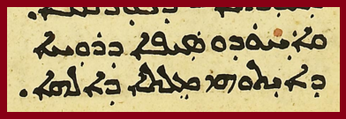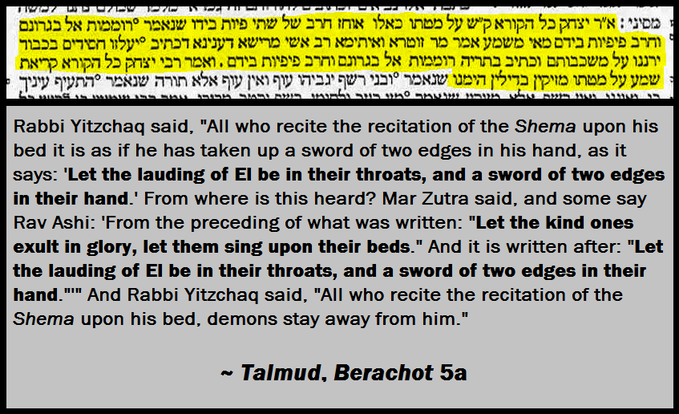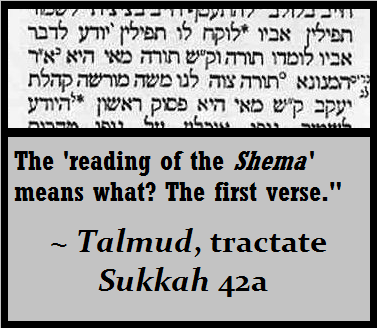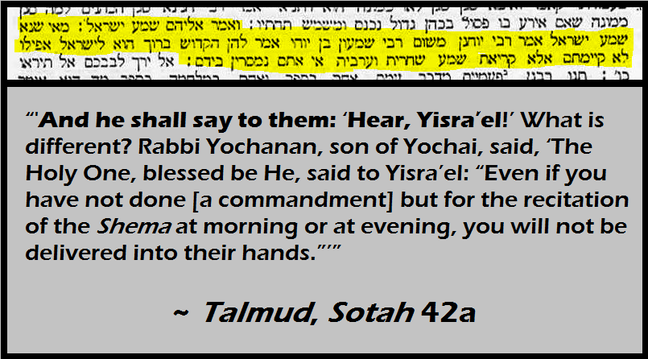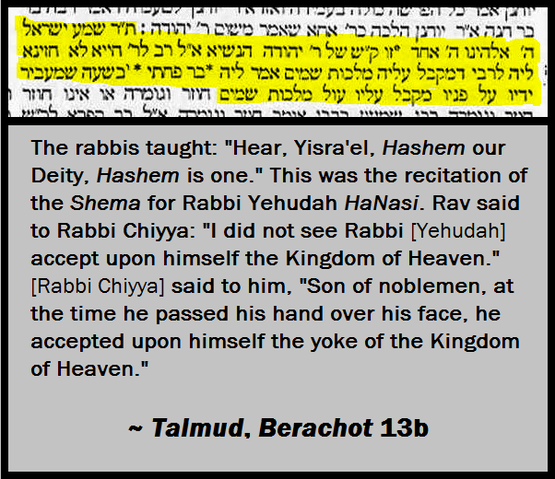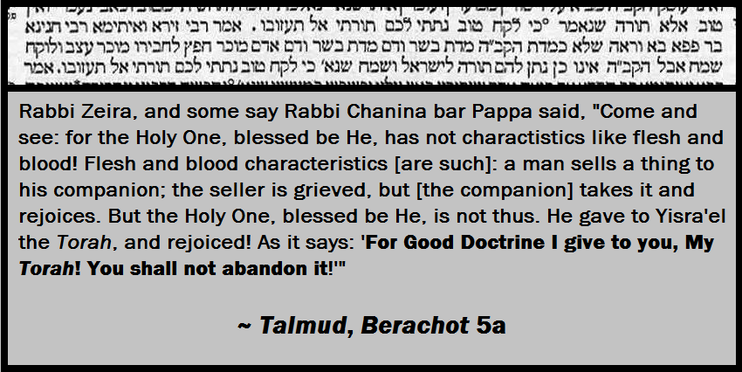THE SWORD OF SHEMA
by Jeremy Chance Springfield
1/1/19
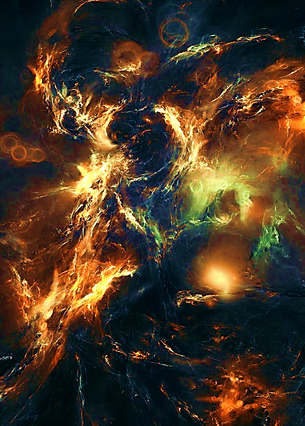
Believers have been born, seemingly on the edge of a knife, into a hostile world. The failure of our first father ensured our earthly experience would be one of enmity with the environment. No Edenic paradise has ever been known by the progeny of Adam; he wrecked a world and cast his seed into the fractured chaos that ensued. Creation shattered and fell into so many jagged shards that pierced the souls of men to this day, pinning us to hopelessness and a shadowy estrangement from our original high purpose and proximity to all that is holy. Darkness and fear surround us now, a bedlam ever-attempting to wrest from our hearts that frail flicker of a hope for a future where man is mercifully reunited with and powerfully participating in the work of righteousness. We are at present at odds with the cruel authorities of such spiritual turmoil – those of our own making, who have thus made themselves masters of evil intent towards us. In fact, this enmity we experience is outright war.
The weight of what awaits us every day could be crushing. The day’s disarray is easily enough to fracture mind and might like dry bone beneath a heavy stone. Without help from the Holy One Himself, what hope would man ever have in opposing the principalities and powers that reign with iron fist over this splintered world? The Creator has thankfully not left us to rot in the curse of our choice but has bestowed us with a mercy mightier than all the powers that resist us. Into the abyss of our sin He cast a weapon that illuminates the darkness and reaches up and out, beyond the depth of despair, into the hope of the Kingdom of Heaven triumphant at last. Into the battlefield of His creation, the Holy One has flung the blade that can serve as the undoing of the works of darkness and idolatry. Let us therefore know it and bear it with skill! The pandemonium erected from the ashes of Eden need not stand as monument to man’s faithless fall, but with the righteous weapon firmly in hand, we can see its walls crumble and all its arcane symbol razed to the shuddering ground.
The weight of what awaits us every day could be crushing. The day’s disarray is easily enough to fracture mind and might like dry bone beneath a heavy stone. Without help from the Holy One Himself, what hope would man ever have in opposing the principalities and powers that reign with iron fist over this splintered world? The Creator has thankfully not left us to rot in the curse of our choice but has bestowed us with a mercy mightier than all the powers that resist us. Into the abyss of our sin He cast a weapon that illuminates the darkness and reaches up and out, beyond the depth of despair, into the hope of the Kingdom of Heaven triumphant at last. Into the battlefield of His creation, the Holy One has flung the blade that can serve as the undoing of the works of darkness and idolatry. Let us therefore know it and bear it with skill! The pandemonium erected from the ashes of Eden need not stand as monument to man’s faithless fall, but with the righteous weapon firmly in hand, we can see its walls crumble and all its arcane symbol razed to the shuddering ground.
This weapon the Holy One so graciously placed into our hands is one single sword. But it is no ordinary cutting edge of weaponry; the blade was not forged of iron or steel upon the hot anvil of the limits of man’s strength. Rather, this sword heralds from the dauntless heart and mind of the Holy One Himself: a spiritual blade of all-encompassing power. We read the popular command to brandish it in Ephesians 6:17, translated here afresh from the Aramaic text of the ancient Eastern Peshitta.
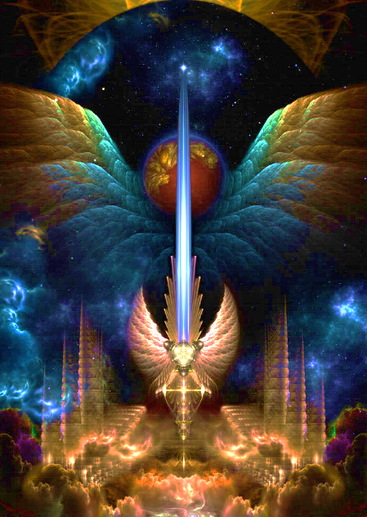
This spiritual sword is not some dubious manner of hocus-pocus, mind-over-matter-type mantra. It is instead the proclamation of the Word of the Most High that has been given to man. Not merely a religious creed or contrived statement of faith, the Word is in truth the instrument by which His people can oppose the wickedness we see so rampant in this world.
Neither does the one who wields it do so against fellow man, but it is lifted against the warring spiritual factions that seek to rule us; those adversaries vaunted among themselves as supreme, but who are usurpers only after man betrayed allegiance to the Almighty. Principalities and powers of nations stand at the tip of our blade – the so-called gods of idolaters who are spiritually rotten, spoiled in thought and deed. It is against their dominions we raise the sword in eternal defiance; their morbid rule is found to be feebler than they would like us to think, and those under their gauntlet who are armed and dangerous pose far more of a danger than even their darkest imaginations could muster. The blade of our weapon rings loud against their vile roar, a resounding alarm that the Kingdom of Heaven has already holy cohorts far behind enemy lines, engaged in deadly advance and effacing all works wherein they have long claimed victory.
Again, the book of Ephesians 6:12 speaks clearly of the unique nature of our battle.
Neither does the one who wields it do so against fellow man, but it is lifted against the warring spiritual factions that seek to rule us; those adversaries vaunted among themselves as supreme, but who are usurpers only after man betrayed allegiance to the Almighty. Principalities and powers of nations stand at the tip of our blade – the so-called gods of idolaters who are spiritually rotten, spoiled in thought and deed. It is against their dominions we raise the sword in eternal defiance; their morbid rule is found to be feebler than they would like us to think, and those under their gauntlet who are armed and dangerous pose far more of a danger than even their darkest imaginations could muster. The blade of our weapon rings loud against their vile roar, a resounding alarm that the Kingdom of Heaven has already holy cohorts far behind enemy lines, engaged in deadly advance and effacing all works wherein they have long claimed victory.
Again, the book of Ephesians 6:12 speaks clearly of the unique nature of our battle.
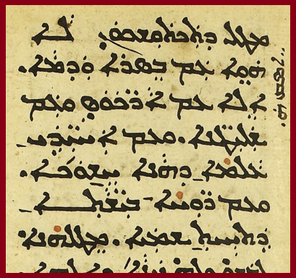
Because our conflict is not with the flesh and the blood, but with the principalities, and with the authorities, and with the keepers of this world of darkness, and with the evil spirits that are under the heavens.

Many believers have heard these truths in messages or read them in private study, and so readily accepted them. This is a wonderful thing to receive in trust! But the question must then be asked: do we know what it even means that the Word is a sword for us to unsheathe and use it effectively in the only war that matters?
Is it the entire Bible?
Is it just a passage?
What is the answer?
How does one wield the Word in such a manner that we are a legitimate and sobering threat to the spiritual authorities who oppose the Kingdom of Heaven? Interestingly, the Talmud Bavli, in tractate Berachot 5a, actually explains further from Scripture itself what it means to view the Word as a sword. The ancient Jewish work clarifies how the heaven-born blade is utilized by the believer.
Is it the entire Bible?
Is it just a passage?
What is the answer?
How does one wield the Word in such a manner that we are a legitimate and sobering threat to the spiritual authorities who oppose the Kingdom of Heaven? Interestingly, the Talmud Bavli, in tractate Berachot 5a, actually explains further from Scripture itself what it means to view the Word as a sword. The ancient Jewish work clarifies how the heaven-born blade is utilized by the believer.
This explanation, derived from the text of Psalms 149:5-6, allows us a moment to see clearer into the mind of the apostle Paul, the author of the passages quoted previously from Ephesians. A Pharisee raised in the holy city of Jerusalem and taught by the most eminent of rabbis, Paul would have been familiar with the traditional teachings that had been passed down orally in the revered schools of Torah, and so his claim concerning the Word being a spiritual sword can be seen to be entirely Jewish in concept, and profoundly rabbinic in nature. The Word to which he referred is most specifically the Shema – the proclamation of the centrality of the worship of the Holy One Himself – the Creator above all the created! This reality is preserved for us in Deuteronomy 6:4-5.

4 Hear, Yisra’el! YHWH our Deity, YHWH is one!
5 And you shall love YHWH your Deity with all your heart, and with all your soul, and with all your veryness.
5 And you shall love YHWH your Deity with all your heart, and with all your soul, and with all your veryness.
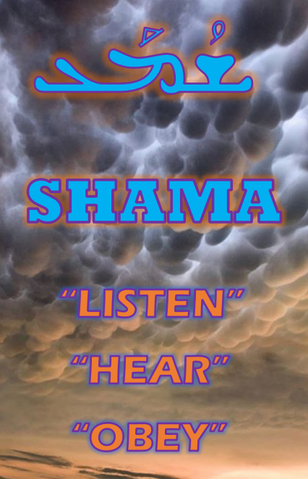
This is important to understand in order to appreciate what Paul is teaching when he speaks about the Word being a sword – he is talking about the Torah’s commandment of the Shema – the central declaration of true worship in all of Scripture. That brief proclamation is the spiritual sword given to the citizens of the Kingdom of Heaven for battle. Indeed, the context of the passage from Ephesians 6 about the Shema being a sword is predicated by the use of the term SHAMA in 6:1 and in 6:5 of Paul’s letter – first encountered in his speaking to “children,” and secondly in his speaking to “servants” – concepts discussed in the Shema in the extended version that is more popular in Judaism which comprises Deuteronomy 6:4-9, 11:13-21, and Numbers 15:37-41. The term the Aramaic of the ancient Peshitta text uses for “obey” in these occurrences from Ephesians 6:1 and 6:5 is an inflection of the word SHAMA, which is merely the Aramaic cognate form of the Hebrew term SHEMA – spelled identically, just pronounced slightly different between the two tongues!
While this is enlightening to perceive, the Aramaic text goes on to clue us in on the fact that Paul was intentionally referring to the Shema as the Word by the usage of several other significant words: in Ephesians 6:5, not only do we see the term SHAMA as was just used, but we also see the mention there of the word “heart,” which is the first manner the Torah describes back in Deuteronomy 6:5 by which we are to love the Creator. Moving down two verses to Ephesians 6:7, we next encounter the phrase “all your soul,” as well as “love,” again, two of the key concepts included in the Shema. Interestingly, though, the phrase “all your soul” and the mention of “love” is only found in the Aramaic text of the Peshitta – not in the Greek! Only in the Aramaic text does the parallel to the Shema so perfectly fit; if left to the Greek, it is an incomplete alignment. Moving on to 6:10, we encounter the admonition to be “strong” in the Holy One, and in His “strength” – which is how the Aramaic and the Greek rendered the Hebrew text’s term of MEOD (literally “very”) “might,” using the same choice of Aramaic term as found in the discourse of Yeshua in Matthew 22:37; Mark 12:29-30; and Luke 10:27.
While this is enlightening to perceive, the Aramaic text goes on to clue us in on the fact that Paul was intentionally referring to the Shema as the Word by the usage of several other significant words: in Ephesians 6:5, not only do we see the term SHAMA as was just used, but we also see the mention there of the word “heart,” which is the first manner the Torah describes back in Deuteronomy 6:5 by which we are to love the Creator. Moving down two verses to Ephesians 6:7, we next encounter the phrase “all your soul,” as well as “love,” again, two of the key concepts included in the Shema. Interestingly, though, the phrase “all your soul” and the mention of “love” is only found in the Aramaic text of the Peshitta – not in the Greek! Only in the Aramaic text does the parallel to the Shema so perfectly fit; if left to the Greek, it is an incomplete alignment. Moving on to 6:10, we encounter the admonition to be “strong” in the Holy One, and in His “strength” – which is how the Aramaic and the Greek rendered the Hebrew text’s term of MEOD (literally “very”) “might,” using the same choice of Aramaic term as found in the discourse of Yeshua in Matthew 22:37; Mark 12:29-30; and Luke 10:27.
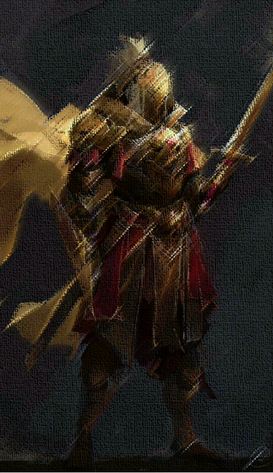
Finally, we see in Ephesians 6:11, 13-14 the call to “stand” in this position as a believer. Given the context of the Shema that Paul is so obviously referencing, these three mentions of “standing” are likely an allusion to the way the Shema was uttered by a believer from ancient times: there was a disagreement between the major rabbinic Torah schools in Israel during the first century, with the school of Shammai stating that one should stand for the initial recitation of the Shema, while the school of Hillel’s position was it would be preferable to sit down for the initial recitation – unless the believer arrived to synagogue late, and the congregation was already in the midst of reciting it – then he should remain standing. The fact that this nuance of custom was deemed important enough to rigorously debate, and considering the wording and context of Paul’s writing, makes it appear that he was likely referencing the Shema yet again, along with the fact that most of the recipients of this letter were righteous Gentiles or converts who were “arriving late,” so to speak, to the faith of their companions in Judaism, and in that symbolism, the idea of “standing” would be logical in a spiritual sense and something completely understood by his readers.
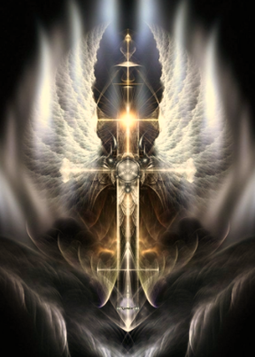
The Aramaic text provides us the fullness of these glaring hints as to what was really being intended by the apostle Paul. The fact that his teaching in this passage from Ephesians went from the initial concept of obedience (SHAMA) to that of spiritual weaponry and the Word (the Shema) as a sword makes complete sense if his underlying rabbinic thought processes are perceived. When understood in the light of his initial mentioning of SHAMA as hinting to the Shema, it aligns perfectly with the Jewish interpretation of the Shema as a sword that is used for spiritual purposes.
In fact, while Judaism has developed over the centuries and millennia to add to the recitation of the Shema to include the further verses following Deuteronomy 6:4-5, the ancient understanding of the rabbis is that it is composed at its core of just the simple declaration mentioned above – a single blade of verse: SHEMA YISRA’EL YHWH ELOHEINU YHWH ECHAD / Hear, Yisra’el! YHWH our Deity, YHWH is one. Just this simple pronouncement is enough to serve as the sword of the Spirit given by the Holy One. Indeed, in the Talmud Bavli, tractate Sukkah 42a, the definitive statement of what the Shema ultimately consists of is concisely stated.
In fact, while Judaism has developed over the centuries and millennia to add to the recitation of the Shema to include the further verses following Deuteronomy 6:4-5, the ancient understanding of the rabbis is that it is composed at its core of just the simple declaration mentioned above – a single blade of verse: SHEMA YISRA’EL YHWH ELOHEINU YHWH ECHAD / Hear, Yisra’el! YHWH our Deity, YHWH is one. Just this simple pronouncement is enough to serve as the sword of the Spirit given by the Holy One. Indeed, in the Talmud Bavli, tractate Sukkah 42a, the definitive statement of what the Shema ultimately consists of is concisely stated.
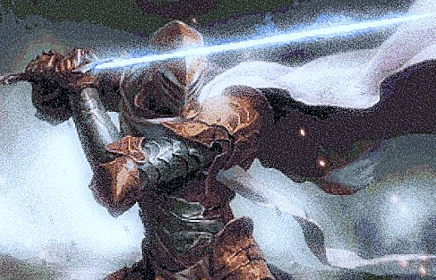
Such a brief comment, really, but it is important to comprehend how significant it is for the faithful in Israel to properly utilize the Word as a sword by proclaiming the identity of the One we worship. To utter this seems almost inconsequential to the mind of the flesh. But how untrue is such a thought! It is no small matter to use the Word in this way: the Shema is the weapon by which we rout the enemies of righteousness. To wield the believer's blade requires knowing exactly what is happening in the spiritual battlegrounds. It is not taken up without skill, but should be brought to the fight with strategic precision and a faith-based certainty strengthening the mind and heart of the one who carries it.
In another quote from the Talmud, we read that the reciting of the Shema is again viewed as spiritual warfare in the Jewish understanding of the matter. Let us read first, however, a passage from Deuteronomy 20:1-4, and then we shall see how our ancient teachers explained it for us as recorded in the Talmud. The Biblical text tells us this:
In another quote from the Talmud, we read that the reciting of the Shema is again viewed as spiritual warfare in the Jewish understanding of the matter. Let us read first, however, a passage from Deuteronomy 20:1-4, and then we shall see how our ancient teachers explained it for us as recorded in the Talmud. The Biblical text tells us this:
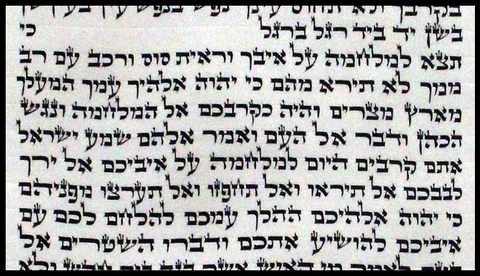
1 When you go out to war against your enemies and see horse and chariot – a people greater than you – do not fear them, for YHWH your Deity is with you, who elevated you from the land of Mitzrayim.
2 And it shall be when you draw near unto the war, then shall the priest approach, and speak unto the people,
3 and say unto them, “Hear, Yisra’el! You draw near today to war against your enemies. Do not [let] your hearts be soft. You shall not fear, and you shall not tremble, and you shall not have dread before them,
4 for YHWH your Deity walks with you, to war for you with your enemies, to rescue you!”
2 And it shall be when you draw near unto the war, then shall the priest approach, and speak unto the people,
3 and say unto them, “Hear, Yisra’el! You draw near today to war against your enemies. Do not [let] your hearts be soft. You shall not fear, and you shall not tremble, and you shall not have dread before them,
4 for YHWH your Deity walks with you, to war for you with your enemies, to rescue you!”
Notice the mention of “Hear, Yisra’el!” in 20:3. This is exactly how the Shema begins. This parallel is not insignificant but was taught from ancient times to be a meaningful detail that holds more weight than the initial glance would convey. The passage of the Talmud Bavli mentioned above is found in tractate Sotah 42a and elaborates for us what is meant spiritually by the expression in Deuteronomy 20:3 that is commanded to be spoken to the warriors of Israel.
The phrase is an allusion to the Shema, and that those warriors who are faithful in the spiritual battle first shall see divine help in the physical, as well. The warriors are to be going forth against idolaters who are calling upon their particular demonic spirits to empower them and give them victory, but here we see that the Torah’s declaration from the priest of SHEMA YISRA’EL is intended to recall to mind the true worship Israel is intimately a part of, and that the Holy One fights for those who are in His Kingdom to give the victory against perversion and lawlessness.
The Talmud goes on to show that it is, indeed, a spiritual movement when we make such a declaration. In tractate Berachot 13b, we read about what the famous Rabbi Judah HaNasi was doing when he so humbly yet surely recited the Shema.
The Talmud goes on to show that it is, indeed, a spiritual movement when we make such a declaration. In tractate Berachot 13b, we read about what the famous Rabbi Judah HaNasi was doing when he so humbly yet surely recited the Shema.
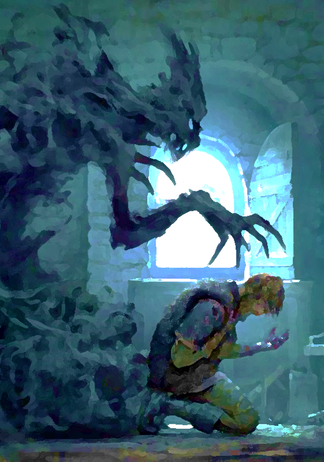
Notice that is not a grand and dramatic spiritual warfare engagement. Those who have had encounters with modern spiritual warfare will note the drastic difference: no pomp or prolonged expression of emotional duress take place with the pure proclamation of the Shema. Rabbi Judah HaNasi, with eyes hidden behind his hand so as not to be distracted in that brief moment of proclaiming fidelity to the Holy One, spoke the Word, and in so doing it was the taking up of a spiritual sword, for the euphemism for it in the text speaks volumes: just speaking even quietly he accepted the Kingdom of Heaven upon himself by uttering the Shema!
The believer’s warfare is the utterance of this statement – a mere six words in the Hebrew tongue! The content of that warfare is also of curiosity. We wage war not by spouting an eloquent rebuke or a verbal assault consisting of threats or incantation-like formulas. Instead, the nature of the Shema is decidedly simple: it is a spiritual pledge of allegiance to the Creator. By reciting it, the believer affirms with Whom he stands. The Shema is us taking a side in the warring domains in reality: claiming to be part of the coming Kingdom of Heaven and rejecting the realm of darkness that pervades creation. On the battlefield of faith, no man can afford to stand neutral. We have to take a side. We have to choose for which realm we shall stand. The Shema is that cry of war which tells the enemies of eternity that we oppose all they stand for by choosing to worship the Creator alone. This factor is worth contemplating: we do not fight with the genius of the intellect, but by announcing who it is that we worship and the Kingdom we inhabit. It is not an attack of wits, but a foray forged in faith. By it we subdue the enemy.
The reciting of the Shema is equal to taking the Kingdom of Heaven upon oneself – a pledge to be an active part of the preservation of what the Holy One deems the community of His people should look like. It is a rejection of the world and the powers which rule behind the scenes in those nations. This is evidenced by returning for a moment to the initial quote from the Talmud, tractate Berachot 5a, where we read the rabbis gleaned their idea of the Shema as a sword. The text there quotes a Scriptural passage in order to provide further insight into the nature of the use of the Word as a spiritual weapon for the Kingdom of Heaven. The passage the rabbis quoted was Psalms 149:5-6 to show the validity of the Shema being a double-edged sword, but the Scriptural text in that place continues and reads in verses 7-9 the following illuminating words concerning the reason why we are to take up the spiritual sword upon our beds.
The believer’s warfare is the utterance of this statement – a mere six words in the Hebrew tongue! The content of that warfare is also of curiosity. We wage war not by spouting an eloquent rebuke or a verbal assault consisting of threats or incantation-like formulas. Instead, the nature of the Shema is decidedly simple: it is a spiritual pledge of allegiance to the Creator. By reciting it, the believer affirms with Whom he stands. The Shema is us taking a side in the warring domains in reality: claiming to be part of the coming Kingdom of Heaven and rejecting the realm of darkness that pervades creation. On the battlefield of faith, no man can afford to stand neutral. We have to take a side. We have to choose for which realm we shall stand. The Shema is that cry of war which tells the enemies of eternity that we oppose all they stand for by choosing to worship the Creator alone. This factor is worth contemplating: we do not fight with the genius of the intellect, but by announcing who it is that we worship and the Kingdom we inhabit. It is not an attack of wits, but a foray forged in faith. By it we subdue the enemy.
The reciting of the Shema is equal to taking the Kingdom of Heaven upon oneself – a pledge to be an active part of the preservation of what the Holy One deems the community of His people should look like. It is a rejection of the world and the powers which rule behind the scenes in those nations. This is evidenced by returning for a moment to the initial quote from the Talmud, tractate Berachot 5a, where we read the rabbis gleaned their idea of the Shema as a sword. The text there quotes a Scriptural passage in order to provide further insight into the nature of the use of the Word as a spiritual weapon for the Kingdom of Heaven. The passage the rabbis quoted was Psalms 149:5-6 to show the validity of the Shema being a double-edged sword, but the Scriptural text in that place continues and reads in verses 7-9 the following illuminating words concerning the reason why we are to take up the spiritual sword upon our beds.
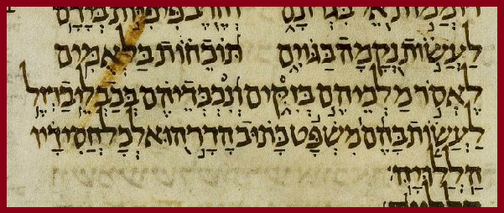
7 To perform vengeance on the nations, rebuke upon the peoples.
8 To bind their kings in chains, and their glorious ones in iron cables.
9 To execute on them the judgment written. [Such] is the honor for all His kind ones. Hallelujah!
8 To bind their kings in chains, and their glorious ones in iron cables.
9 To execute on them the judgment written. [Such] is the honor for all His kind ones. Hallelujah!

The use of the Word in this way shows us that we are not attacking literal earthly reigns of men and women on their various thrones. If the sword can be wielded upon His people’s beds, it is thus not a literal weapon against earthly reigns. If the battle can be at one's bedside, then it is true the enemy is not one of flesh and blood. No, we lift our hearts and voice in utterance of the Shema and all it entails to advance upon the principalities and the powers which rule in the realm of the spirit. It is the proclamation of true worship that is a bane in the ears of those monstrous rebels, for we announce our fealty to the Creator's eternal rulership, opposing their paltry kingdoms as tottering and ready to fall at the coming of His Messiah. The Shema upon our lips forms a daily advance against those spiritual spheres that lust to swallow up the light of true worship in this world.
It is 2nd Corinthians 10:4 where we read another of Paul’s declarations that our weaponry is not intended for a human overthrow, but for a spiritual routing of unseen fortresses who have rebelled against the plan of the Holy One.
It is 2nd Corinthians 10:4 where we read another of Paul’s declarations that our weaponry is not intended for a human overthrow, but for a spiritual routing of unseen fortresses who have rebelled against the plan of the Holy One.
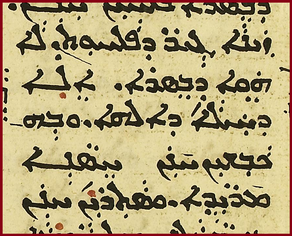
For the weaponry of our service is not of the flesh, but of the power of Alaha, and with it we subdue rebellious fortresses.
The Holy One is not flesh and blood, and neither are the foes who think to combat us with their hopelessness and fear. We cannot fight them as one would flesh and blood, just as we cannot understand the Holy One as we do flesh and blood. Yet, He has in joy given us His Torah, and by it do we not only find the path that leads to His salvation, we also find that through it we are able to fight the good fight against all those who are His enemies. In the same Talmudic tractate quoted from previously, in Berachot 5a, just a few lines down from what was referenced, we read now this statement, made within the context of the use of the Shema for spiritual warfare purposes, and we begin to see how all that Paul was writing about the Word as a sword fit seamlessly into what he had learned about the nature of spiritual warfare as a Pharisee.
So it is that the portion given to us, the Torah, and more precisely in this context, the Shema, is not for fighting flesh and blood, for it comes from He who Himself is not flesh and blood, but is the supreme Spirit above and beyond all created powers, requiring us to use it in the heavenly context in which it was given. It is here quoted to be the "Good Doctrine" given to us, referencing Proverbs 4:2. But even given this, can we be sure that what Paul was speaking of in 2nd Corinthians 10:4 about our weaponry was really referencing the Shema? The passage doesn’t specifically mention a “sword” in this case, so can it be known this is in the same context as the Shema? The answer is a resounding YES! However, to see this truth, we must return to the passage and keep reading into verses 5-6, and we will see that the Aramaic text of the Peshitta preserves the truth in a beautiful way.
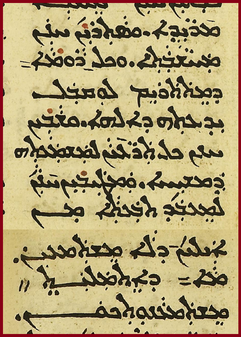
5 and we pull down reckonings, and every high place that is exalted against the knowledge of Alaha, and we capture every thought to the obedience of the Messiah,
6 and we are prepared to perform vengeance on those who are not obeying, when that your obedience is fulfilled.

While perhaps not readily recognizable in the English, the Aramaic of this passage speaks volumes. Again, like the context of Ephesians 6 previously mentioned, the term for “obey” in all three occurrences here is the same – SHAMA – the Aramaic equivalent of the Hebrew word SHEMA. The fact that Paul speaks of this term in the context of a spiritual weapon is an insight into the mind and thought processes of the Pharisee. It is also likely that he was considering the teaching based on Psalms 149 of the Shema being uttered upon the beds of the faithful, for it is at night-time that the believer, about to drift to sleep, is otherwise “unprotected” against the onslaught of fleshly thoughts and reckonings. The pronouncing of the Shema as the heavenly weaponry he references which takes thoughts captive perfectly fits the context of uttering it to send fleeing possible negative spiritual powers that may attempt to take advantage of our exposed mental and spiritual condition at bedtime. The harmony of these truths is a beautiful thing to appreciate when we take the time to read the Semitic sources for these vital aspects of our faith.
Paul knew well what it meant to fight the good fight with the good weapon given to us as citizens of the Kingdom. He knew that just a blade of verse could do more damage than the greatest weapons of man. The wielding of the Word in that manner sends demons scampering into the dark, away from the onslaught of saving hope in the hearts of the true believers. The sword of Shema accomplishes exactly what the Holy One intended for it to do. Hebrews 4:12 says it so beautifully.
Paul knew well what it meant to fight the good fight with the good weapon given to us as citizens of the Kingdom. He knew that just a blade of verse could do more damage than the greatest weapons of man. The wielding of the Word in that manner sends demons scampering into the dark, away from the onslaught of saving hope in the hearts of the true believers. The sword of Shema accomplishes exactly what the Holy One intended for it to do. Hebrews 4:12 says it so beautifully.
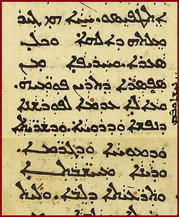
For living is the Word of Alaha, and entirely effective, and much sharper than a sword of two edges, and enters unto the separation of the soul and of the spirit, and of joints and of marrow, and of bones, and judges the reckonings and the thoughts of the heart.

This passage, so poetic in wording, is once again a reference to the deadly threat the Shema poses to the adversaries of the Kingdom of Heaven when taken on the tongue of the believer. The context, like that we have seen was found in Ephesians and in 2nd Corinthians before it, again tells us that the intent behind the mind of the Semitic writer is that of the Shema. This verse even makes mention of the "soul" and the "heart" - vital parts that comprise the utterance of the Shema, and so should not be overlooked as unimportant. In Hebrews 4:2 and 4:7 we once more read in the Aramaic of the Peshitta inflected forms of the word SHAMA. In fact, 4:7 even brings up the topic of “heart” along with the term, clearly evoking the Shema in regard to the command found in Deuteronomy 6:5 to love the Holy One Himself with all of our “heart.”
Additionally, the concept of “rest” is a repeated topic leading up to the declaration that the Word is a double-edged sword in Hebrews 4. This context is important to note considering the ancient rabbinic understanding of the Shema being spoken at bedtime and its connection to a double-edged sword, as previously quoted from the Talmud. All these words serve as primers for the introduction of the mention of the Word as a double-edged sword in Hebrews 4:12.
Without understanding the key words in those initial verses, the reader is left to ponder why the flow of discussion so suddenly changes to the topic of a weapon when it has been about “rest” and “hearing” and what it did or did not do for the faith of a person. Knowing the Hebraic concepts of the Shema as a weapon allows us to appreciate the sentiment as absolutely within the context of the entire passage. If we speak the Shema in faith, with a heart that is not hard, it equips us for the battle that we face every single day, and we fight thus with the promise of rest!
For the war is real.
The stakes cannot be higher.
The enemy is cunning, relentlessly defending ground it has long held.
But the believer has the upper hand; a blade able to pierce beyond the flesh and blood of those who think they oppose us, to the foul spirits that pull the strings behind the veil of space and time. From that glittering point of righteous worship, no principality can escape. It cuts the binding of idolatry and frees hearts to the truth of who deserves to be worshiped in this world. In the hands of His people who know the power of proclaiming the Kingship of the Creator in this earth that shall one day be retaken, there is no greater weapon than the sword of Shema.
Additionally, the concept of “rest” is a repeated topic leading up to the declaration that the Word is a double-edged sword in Hebrews 4. This context is important to note considering the ancient rabbinic understanding of the Shema being spoken at bedtime and its connection to a double-edged sword, as previously quoted from the Talmud. All these words serve as primers for the introduction of the mention of the Word as a double-edged sword in Hebrews 4:12.
Without understanding the key words in those initial verses, the reader is left to ponder why the flow of discussion so suddenly changes to the topic of a weapon when it has been about “rest” and “hearing” and what it did or did not do for the faith of a person. Knowing the Hebraic concepts of the Shema as a weapon allows us to appreciate the sentiment as absolutely within the context of the entire passage. If we speak the Shema in faith, with a heart that is not hard, it equips us for the battle that we face every single day, and we fight thus with the promise of rest!
For the war is real.
The stakes cannot be higher.
The enemy is cunning, relentlessly defending ground it has long held.
But the believer has the upper hand; a blade able to pierce beyond the flesh and blood of those who think they oppose us, to the foul spirits that pull the strings behind the veil of space and time. From that glittering point of righteous worship, no principality can escape. It cuts the binding of idolatry and frees hearts to the truth of who deserves to be worshiped in this world. In the hands of His people who know the power of proclaiming the Kingship of the Creator in this earth that shall one day be retaken, there is no greater weapon than the sword of Shema.
All study contents Copyright Jeremy Chance Springfield, except for graphics and images, which are Copyright their respective creators.

